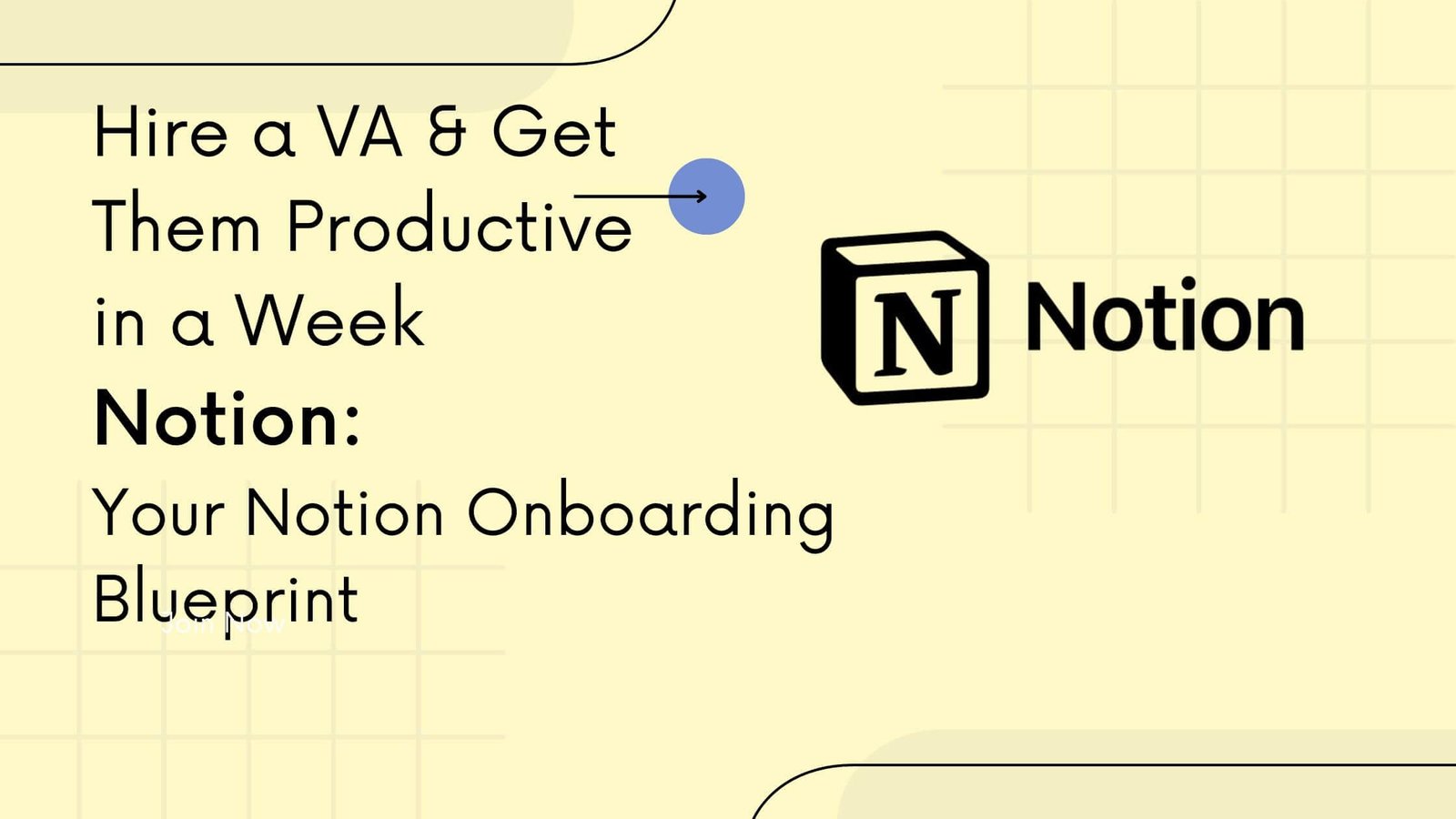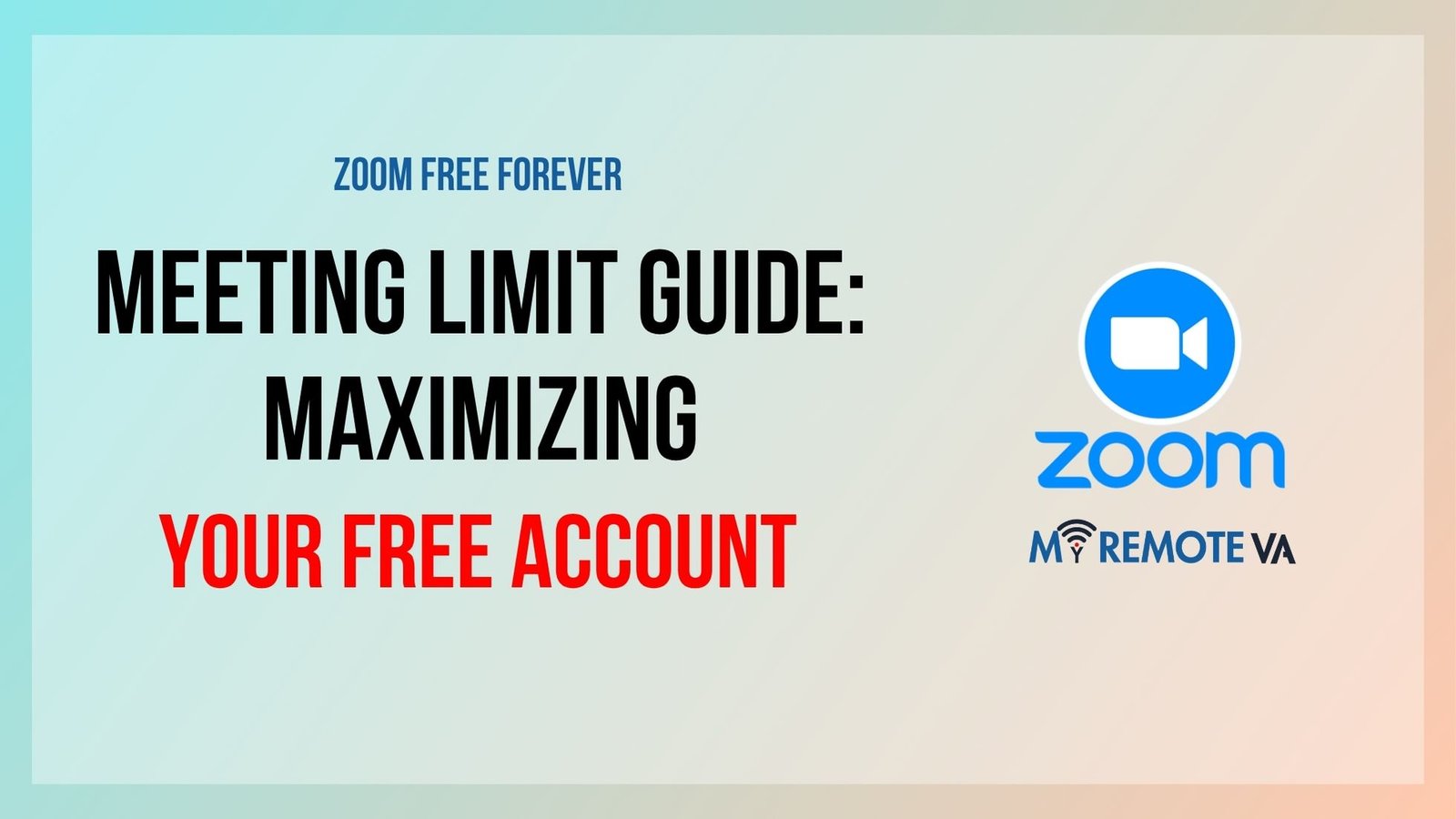Launching a startup is the ultimate balancing act. One minute, you’re a visionary, sketching out the future of your company on a whiteboard. The next, you’re knee-deep in invoices, email threads that never seem to end, and a calendar that looks like a tangled mess of spaghetti. Sound familiar? This is exactly why a VA for startups is more than just a luxury—it’s a powerful tool that can mean the difference between burnout and breakthrough.
A few years ago, I was in that exact spot. My own business was starting to gain traction, and while that was thrilling, it also meant I was drowning in the details. I felt like a human pinball machine, bouncing from email to calendar to spreadsheet, all day long. My creative energy was zapped. One morning, I sat at my desk, looked at the long list of admin tasks, and just thought, “This isn’t sustainable.” That was the moment I realized something had to change. I needed to delegate. That’s when I finally considered the idea of bringing on a virtual assistant for small business, and let me tell you, it was a total game-changer.
- Top 5 Reasons You Need a Virtual Assistant for Your Small Business
- What Exactly Can You Outsource to a Virtual Assistant?
- Ready to Hire? Here’s How to Find the Right Fit
- Breaking Down the Cost: Is It Really Worth It?
- Your Burning Questions, Answered
- Top 5 Reasons You Need a Virtual Assistant for Your Small Business
- What Exactly Can You Outsource to a Virtual Assistant?
- Ready to Hire? Here’s How to Find the Right Fit
- Breaking Down the Cost: Is It Really Worth It?
- Your Burning Questions, Answered
This post is for anyone who’s ever felt that same sense of overwhelm. We’re going to break down exactly what a virtual assistant can do for you, why it’s a brilliant business move, and how to find the perfect one. Think of this as your roadmap to reclaiming your time, your sanity, and your passion for your business. It’s about working smarter, not harder, and finally getting back to the stuff that truly matters.
Top 5 Reasons You Need a Virtual Assistant for Your Small Business
Hiring a virtual assistant for small business isn’t just about crossing a few things off your list; it’s about a complete mindset shift. It’s about building a foundation for serious growth. A VA isn’t just an employee; they’re a strategic partner who can transform your entire operation. Here’s why.
1. Reclaim Your Time and Sanity
This is probably the most powerful benefit of all. How many hours a week do you spend on tasks that don’t actually generate revenue? Things like scheduling meetings, responding to a flood of emails, or booking travel. These tasks are necessary, of course, but they’re not what moves the needle. A virtual assistant takes all of that off your plate, freeing you up to focus on the big picture. Imagine what you could do with an extra 10, 15, or even 20 hours a week. You could be building new client relationships, developing a killer marketing strategy, or just finally taking a deep breath.
2. Slash Your Overhead Costs
Let’s talk money, because this is huge. A virtual assistant is almost always a contractor, which means you’re not on the hook for a whole list of expenses that come with a traditional employee. We’re talking about things like payroll taxes, health insurance, paid vacation, sick leave—the list goes on. Plus, you don’t have to provide them with office space or a computer. You just pay for the work they do. It’s an incredibly efficient way to get top-tier support without the financial commitment of a full-time hire.

3. Unlock a Global Pool of Talent
When you hire locally, you’re limited to a small talent pool. But with a VA, the entire world is your oyster. You’re no longer limited to the skills of someone in your city; you can find the exact expertise you need, wherever they are. Need someone who is an absolute whiz at social media? Or a guru at data analysis? You can find a professional who specializes in that specific niche. This allows you to scale your team and your capabilities without having to train someone from the ground up or hire someone full-time with a skill you only need occasionally.
4. Supercharge Your Productivity
Think about how many times a day you get distracted by an email notification or an unexpected phone call. A virtual assistant acts as a powerful buffer, handling those interruptions so you can stay in your zone of genius. They can streamline your workflows, organize your projects, and make sure everything is running like a well-oiled machine. This kind of efficiency isn’t just about getting more done; it’s about doing better work with less stress. This is something we’ve explored before in our guide on the differences between these remote roles: Virtual Assistant vs Administrative Assistant: What’s the Difference?
5. Instantly Boost Your Professional Image
A virtual assistant can be the professional face of your business. They can manage your customer service inquiries with a friendly, prompt tone, handle your social media engagement, and ensure that every interaction reflects positively on your brand. Even if you’re a solopreneur, a VA can make you appear larger and more established, which is a powerful advantage in a competitive market.
What Exactly Can You Outsource to a Virtual Assistant?
The short answer? A lot. A great virtual assistant can take a huge variety of tasks off your plate, allowing you to breathe easier. Think of your VA as your personal Swiss Army knife for all things admin and beyond. Here are just a few examples of what you can hand over to a virtual assistant for your small business:
Admin and Support Tasks That Save the Day
- Email and Calendar Management: Seriously, imagine waking up to a perfectly organized inbox and a calendar that’s already scheduled for the day. A VA can filter out junk, respond to routine inquiries, and schedule all your appointments.
- Data Entry: This is one of those soul-crushing tasks that’s perfect for a VA. Hand over your spreadsheets, and let them handle the tedious but necessary data entry.
- Client & Customer Support: They can be your first line of defense, answering customer questions, managing support tickets, and ensuring your clients feel valued and heard.
Marketing and Creative Tasks
- Social Media Management: From scheduling posts to engaging with your audience and monitoring analytics, a VA can keep your social media presence humming along without you having to think about it.
- Content Creation: They can help you brainstorm ideas, draft blog posts, proofread articles, and even create simple graphics. This can be a huge time-saver.
- Market Research: A VA can dig into your competitors, identify industry trends, and find potential leads, giving you valuable intel for your business strategy.

Ready to Hire? Here’s How to Find the Right Fit
Okay, so you’re convinced. Now what? The idea of hiring a remote stranger can feel a little intimidating, but it doesn’t have to be. I’ve broken it down into a few simple steps to make the process as smooth as possible.
1. Get Crystal Clear on Your Needs
Before you even start looking, sit down and make a list of everything you want your VA to do. Be brutally honest with yourself. What tasks are eating up your time? Are you a social media guru who hates scheduling, or a fantastic service provider who dreads the thought of invoicing? This clarity will be your guiding light. You can also get more insight on this in our comprehensive guide to hiring a virtual assistant.
2. Decide How You’ll Hire
You have a few options here. You can use a freelance marketplace like Upwork, where you’re in full control of the hiring process, but it also means you have to do all the vetting yourself. Or, you can go with a dedicated virtual assistant agency. These companies do all the heavy lifting for you—they screen, train, and manage their VAs, and they often provide a backup if needed. This is a great choice if you want a more hands-off, reliable solution. You could also find someone through a referral, which is a fantastic way to find talent you can trust from the get-go.
3. Put Them to the Test
Once you’ve narrowed down your options, a quick video call is a must. See if your personalities click. Then, consider giving them a small, paid test project. This is a brilliant way to see how they communicate, how they work, and what the quality of their output is like. I did this with my first VA—I gave her a simple data entry task. Her attention to detail was amazing, and it gave me so much confidence in her work before I committed to a bigger project. It’s a low-risk way to ensure a great partnership.
Breaking Down the Cost: Is It Really Worth It?
The cost of a virtual assistant can be all over the map, but the honest truth is, it’s almost always a smart investment. Rates depend on a few things: where your VA is located, their experience, and the kind of tasks you need them for. A general admin VA will likely be more affordable than someone who specializes in things like web development or graphic design.
You can find rates as low as $10 an hour, but you might also see rates of $40 or more for a highly skilled expert in a specific niche. But think of it this way: what is your time worth? If offloading a few hours of admin work allows you to focus on a high-value task that generates hundreds or thousands of dollars in revenue, that investment pays for itself almost instantly. Plus, as we discussed earlier, you avoid all the hidden costs of a traditional employee. It’s a win-win.
For more information on the financial and operational benefits of outsourcing, you can also check out this article on the official Small Business Administration (SBA) website, a trusted resource for entrepreneurs.

Your Burning Questions, Answered
Q: What is a virtual assistant for small business?
A: A virtual assistant (VA) is a skilled professional who provides business support remotely. They’re independent contractors, meaning they work from their own location and use technology to help you with everything from admin to marketing, freeing you up to focus on growing your business.
Q: How do I know if I’m ready for a VA?
A: A good sign is if you’re constantly feeling overwhelmed or spending too much time on tasks that don’t directly bring in money. If you can make a list of at least five hours of work a week that someone else could do, you’re probably ready to make the leap.
Q: Is my information safe with a virtual assistant?
A: Yes, it should be. Reputable VAs and agencies take confidentiality very seriously. You should always sign a Non-Disclosure Agreement (NDA) before sharing any sensitive business information. Most VAs are used to handling private data and use secure methods to protect it.
Q: How do I manage a remote assistant?
A: It’s all about communication and trust. Use project management tools like Trello or Asana, and communication apps like Slack. Provide clear, detailed instructions for each task and check in regularly. The goal is to set them up for success, not to micromanage every single move.
Q: What’s the difference between a general VA and a specialized one?
A: A general VA is a jack-of-all-trades who can handle a wide range of tasks, like email and calendar management. A specialized VA is an expert in a specific area—for example, a VA who only does bookkeeping or one who focuses solely on social media marketing. It all depends on your specific business needs.
Bringing a virtual assistant for a small business into your world can be one of the most powerful moves you make. It’s an investment in your time, your productivity, and ultimately, your own well-being. Stop feeling overwhelmed and start focusing on the bigger picture. You got this.
Let’s be honest for a second. When you started your small business, you probably had a vision. You saw yourself as the innovator, the strategist, the one who’s out there making things happen. You definitely didn’t see yourself spending hours every single day wrestling with your inbox, playing calendar Tetris, or chasing down invoices. But for so many of us, that’s exactly what the day-to-day looks like. It’s a grind that can totally drain the joy right out of the work you love.
A few years ago, I was in that exact spot. My own business was starting to gain traction, and while that was thrilling, it also meant I was drowning in the details. I felt like a human pinball machine, bouncing from email to calendar to spreadsheet, all day long. My creative energy was zapped. One morning, I sat at my desk, looked at the long list of admin tasks, and just thought, “This isn’t sustainable.” That was the moment I realized something had to change. I needed to delegate. That’s when I finally considered the idea of bringing on a virtual assistant for small business, and let me tell you, it was a total game-changer.
- Top 5 Reasons You Need a Virtual Assistant for Your Small Business
- What Exactly Can You Outsource to a Virtual Assistant?
- Ready to Hire? Here’s How to Find the Right Fit
- Breaking Down the Cost: Is It Really Worth It?
- Your Burning Questions, Answered
- Top 5 Reasons You Need a Virtual Assistant for Your Small Business
- What Exactly Can You Outsource to a Virtual Assistant?
- Ready to Hire? Here’s How to Find the Right Fit
- Breaking Down the Cost: Is It Really Worth It?
- Your Burning Questions, Answered
This post is for anyone who’s ever felt that same sense of overwhelm. We’re going to break down exactly what a virtual assistant can do for you, why it’s a brilliant business move, and how to find the perfect one. Think of this as your roadmap to reclaiming your time, your sanity, and your passion for your business. It’s about working smarter, not harder, and finally getting back to the stuff that truly matters.
Top 5 Reasons You Need a Virtual Assistant for Your Small Business
Hiring a virtual assistant for small business isn’t just about crossing a few things off your list; it’s about a complete mindset shift. It’s about building a foundation for serious growth. A VA isn’t just an employee; they’re a strategic partner who can transform your entire operation. Here’s why.
1. Reclaim Your Time and Sanity
This is probably the most powerful benefit of all. How many hours a week do you spend on tasks that don’t actually generate revenue? Things like scheduling meetings, responding to a flood of emails, or booking travel. These tasks are necessary, of course, but they’re not what moves the needle. A virtual assistant takes all of that off your plate, freeing you up to focus on the big picture. Imagine what you could do with an extra 10, 15, or even 20 hours a week. You could be building new client relationships, developing a killer marketing strategy, or just finally taking a deep breath.
2. Slash Your Overhead Costs
Let’s talk money, because this is huge. A virtual assistant is almost always a contractor, which means you’re not on the hook for a whole list of expenses that come with a traditional employee. We’re talking about things like payroll taxes, health insurance, paid vacation, sick leave—the list goes on. Plus, you don’t have to provide them with office space or a computer. You just pay for the work they do. It’s an incredibly efficient way to get top-tier support without the financial commitment of a full-time hire.

3. Unlock a Global Pool of Talent
When you hire locally, you’re limited to a small talent pool. But with a VA, the entire world is your oyster. You’re no longer limited to the skills of someone in your city; you can find the exact expertise you need, wherever they are. Need someone who is an absolute whiz at social media? Or a guru at data analysis? You can find a professional who specializes in that specific niche. This allows you to scale your team and your capabilities without having to train someone from the ground up or hire someone full-time with a skill you only need occasionally.
4. Supercharge Your Productivity
Think about how many times a day you get distracted by an email notification or an unexpected phone call. A virtual assistant acts as a powerful buffer, handling those interruptions so you can stay in your zone of genius. They can streamline your workflows, organize your projects, and make sure everything is running like a well-oiled machine. This kind of efficiency isn’t just about getting more done; it’s about doing better work with less stress. This is something we’ve explored before in our guide on the differences between these remote roles: Virtual Assistant vs Administrative Assistant: What’s the Difference?
5. Instantly Boost Your Professional Image
A virtual assistant can be the professional face of your business. They can manage your customer service inquiries with a friendly, prompt tone, handle your social media engagement, and ensure that every interaction reflects positively on your brand. Even if you’re a solopreneur, a VA can make you appear larger and more established, which is a powerful advantage in a competitive market.
What Exactly Can You Outsource to a Virtual Assistant?
The short answer? A lot. A great virtual assistant can take a huge variety of tasks off your plate, allowing you to breathe easier. Think of your VA as your personal Swiss Army knife for all things admin and beyond. Here are just a few examples of what you can hand over to a virtual assistant for your small business:
Admin and Support Tasks That Save the Day
- Email and Calendar Management: Seriously, imagine waking up to a perfectly organized inbox and a calendar that’s already scheduled for the day. A VA can filter out junk, respond to routine inquiries, and schedule all your appointments.
- Data Entry: This is one of those soul-crushing tasks that’s perfect for a VA. Hand over your spreadsheets, and let them handle the tedious but necessary data entry.
- Client & Customer Support: They can be your first line of defense, answering customer questions, managing support tickets, and ensuring your clients feel valued and heard.
Marketing and Creative Tasks
- Social Media Management: From scheduling posts to engaging with your audience and monitoring analytics, a VA can keep your social media presence humming along without you having to think about it.
- Content Creation: They can help you brainstorm ideas, draft blog posts, proofread articles, and even create simple graphics. This can be a huge time-saver.
- Market Research: A VA can dig into your competitors, identify industry trends, and find potential leads, giving you valuable intel for your business strategy.

Ready to Hire? Here’s How to Find the Right Fit
Okay, so you’re convinced. Now what? The idea of hiring a remote stranger can feel a little intimidating, but it doesn’t have to be. I’ve broken it down into a few simple steps to make the process as smooth as possible.
1. Get Crystal Clear on Your Needs
Before you even start looking, sit down and make a list of everything you want your VA to do. Be brutally honest with yourself. What tasks are eating up your time? Are you a social media guru who hates scheduling, or a fantastic service provider who dreads the thought of invoicing? This clarity will be your guiding light. You can also get more insight on this in our comprehensive guide to hiring a virtual assistant.
2. Decide How You’ll Hire
You have a few options here. You can use a freelance marketplace like Upwork, where you’re in full control of the hiring process, but it also means you have to do all the vetting yourself. Or, you can go with a dedicated virtual assistant agency. These companies do all the heavy lifting for you—they screen, train, and manage their VAs, and they often provide a backup if needed. This is a great choice if you want a more hands-off, reliable solution. You could also find someone through a referral, which is a fantastic way to find talent you can trust from the get-go.
3. Put Them to the Test
Once you’ve narrowed down your options, a quick video call is a must. See if your personalities click. Then, consider giving them a small, paid test project. This is a brilliant way to see how they communicate, how they work, and what the quality of their output is like. I did this with my first VA—I gave her a simple data entry task. Her attention to detail was amazing, and it gave me so much confidence in her work before I committed to a bigger project. It’s a low-risk way to ensure a great partnership.
Breaking Down the Cost: Is It Really Worth It?
The cost of a virtual assistant can be all over the map, but the honest truth is, it’s almost always a smart investment. Rates depend on a few things: where your VA is located, their experience, and the kind of tasks you need them for. A general admin VA will likely be more affordable than someone who specializes in things like web development or graphic design.
You can find rates as low as $10 an hour, but you might also see rates of $40 or more for a highly skilled expert in a specific niche. But think of it this way: what is your time worth? If offloading a few hours of admin work allows you to focus on a high-value task that generates hundreds or thousands of dollars in revenue, that investment pays for itself almost instantly. Plus, as we discussed earlier, you avoid all the hidden costs of a traditional employee. It’s a win-win.
For more information on the financial and operational benefits of outsourcing, you can also check out this article on the official Small Business Administration (SBA) website, a trusted resource for entrepreneurs.

Your Burning Questions, Answered
Q: What is a virtual assistant for small business?
A: A virtual assistant (VA) is a skilled professional who provides business support remotely. They’re independent contractors, meaning they work from their own location and use technology to help you with everything from admin to marketing, freeing you up to focus on growing your business.
Q: How do I know if I’m ready for a VA?
A: A good sign is if you’re constantly feeling overwhelmed or spending too much time on tasks that don’t directly bring in money. If you can make a list of at least five hours of work a week that someone else could do, you’re probably ready to make the leap.
Q: Is my information safe with a virtual assistant?
A: Yes, it should be. Reputable VAs and agencies take confidentiality very seriously. You should always sign a Non-Disclosure Agreement (NDA) before sharing any sensitive business information. Most VAs are used to handling private data and use secure methods to protect it.
Q: How do I manage a remote assistant?
A: It’s all about communication and trust. Use project management tools like Trello or Asana, and communication apps like Slack. Provide clear, detailed instructions for each task and check in regularly. The goal is to set them up for success, not to micromanage every single move.
Q: What’s the difference between a general VA and a specialized one?
A: A general VA is a jack-of-all-trades who can handle a wide range of tasks, like email and calendar management. A specialized VA is an expert in a specific area—for example, a VA who only does bookkeeping or one who focuses solely on social media marketing. It all depends on your specific business needs.
Bringing a virtual assistant for a small business into your world can be one of the most powerful moves you make. It’s an investment in your time, your productivity, and ultimately, your own well-being. Stop feeling overwhelmed and start focusing on the bigger picture. You got this.










